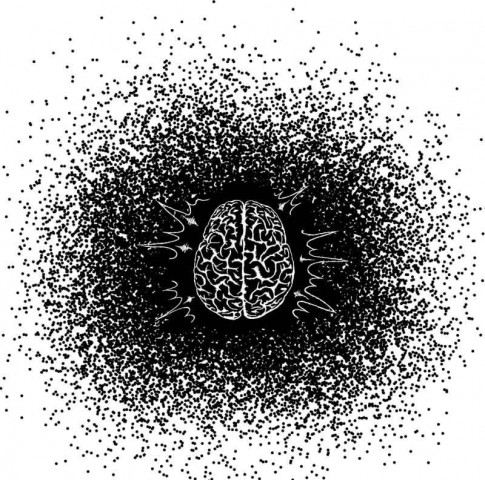Health: Demystifying migraine
The awful neurological disease is treatable, and not as damaging as you think

The awful neurological disease is treatable, and not as damaging as you think. DESIGN: OMER ASIM
But hold on. As common as it is, little is known about the condition. Migraines are neurological disorders that affect 25-30 per cent of the world population, but most people just see it as a headache. “A large number of people do not know that they are suffering from migraine, which is a very common problem,” said Dr Muhammad Wasay, a neurologist and professor at Aga Khan University Hospital.
Migraines can start at any age, but most people experience their first attack during their early adulthood. In two thirds of all cases, migraines run in the family. More women suffer from migraine than men — three times as many, according to Dr Jai Perkash, assistant professor at Dow University of Health Sciences. Dr Wasay said that around 30 per cent of women who suffer from migraine get them during menstruation, so they should be given medicine a week before their periods start.
Major symptoms
Migraines generally affect one half of the head. The headaches from a migraine tend to be worse when the person is active. Migraines also prompt nausea, vomiting, sensitivity to loud sound, bright light, and dizziness in some cases. Dr Perkash said that symptoms and their frequency vary on a case-to-case basis. Many people have corresponding symptoms lasting anywhere from a few minutes to days following the headache; those symptoms may include sleepiness, irritability, fatigue, depression, yawning, and cravings for sweet or salty foods.
Some migraines have warning symptoms — blurred vision, eye pain, blind spots — called aura, which occur 15-20 minutes before the headache starts. However, most cases, around 80 per cent, are without aura.
Triggers
An exhaustive list: stress, depression, a heavy work load, dehydration, too chocolate, coffee, tea, cheese or alcohol. Dr Wasay said that during Ramazan, migraine attacks increase since people have empty stomachs and can’t have their routine intake of caffeine. Everyone has their own triggers and it is important to understand your own to do your best to avoid them. Keeping a journal of known triggers—certain foods, sounds, or bright lights—may help avoid future migraine attacks.
Frequent attacks are rare, so if a patient suffers more than two attacks in a month doctors ought to give preventive medicine, Dr Wasay said.
Coping with the condition
A number of effective treatments are available to reduce the symptoms and prevent further attacks. Their frequency can be reduced by taking a few simple measures: regular exercise, avoiding stress, and eating and sleeping regularly. Painkillers are a bad idea; they could damage your kidneys and liver. “It is a pity that people consider it [migraine] just a bad headache and get hooked on painkillers,” Dr Wasay said. If the headaches get really bad, visit a neurologist immediately.
“It’s an episodic disorder but once it is diagnosed it is preventable,” said Dr Perkash.
No damaging effects
As awful as migraines are, they’re not that bad. “Only 15 per cent of the patients suffer from severe conditions that they are taken to the hospital,” Dr Wasay said.
He also said that a migraine is benign. “Even if a person suffers from many migraine attacks in life, the attacks do not cause any damage to the brain.”
Still, they do make life pretty uncomfortable. Dr Perkash said that they severely affect one’s quality of life and stop people from carrying out their daily activities. Some people feel compelled to stay in bed for days at a time.
Ishrat Ansari works at The Express Tribune Karachi desk. She tweets @Ishrat_ansari
Published in The Express Tribune, Sunday Magazine, January 11th, 2015.



















COMMENTS
Comments are moderated and generally will be posted if they are on-topic and not abusive.
For more information, please see our Comments FAQ